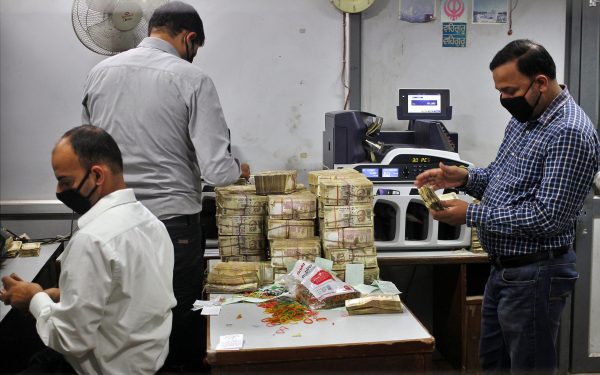With changes effected on 8 November, Modi has walked the talk in a country where political process, real estate transactions, religious festivals and lavish weddings previously reeked of black money or unaccounted wealth. It will no longer be fashionable or a status symbol to wave wads of cash and flaunt ill-gotten wealth in public.
The actual measure — as plainly explained in the press release — is amazingly simple. Up to 4,000 rupees (US$65) in old high denomination notes can be exchanged for the same amount at any commercial bank or post office, either for new 500 rupee notes or any other lower denomination. From February 2017, high denomination notes can be exchanged for hi-tech 2,000 rupee notes, as the Reserve Bank of India (RBI) introduces them in the system. Individuals can also deposit any amount (without any upper limit) in their bank accounts by giving adequate proof of identity and completing a requisition slip.
The economic and political implications of this measure are mind-bogglingly positive. It will, in one stroke, essentially kill the black economy, which is conservatively estimated to be worth more than 20 per cent of the formal economy — or up to 50 per cent by some observers. Even at the conservative lower estimate, this amounts to a staggering 30 lakh crore rupees (US$440 billion). This huge sum was previously held and circulated in cash in India. Very large parts, nearly all of it, became valueless after midnight on 8 November except for transactions at hospitals, pharmacies, transport, funeral services and a few other specified locations that were spelled out in the press release.
By having individuals deposit their cash in their bank accounts, the government effectively merged the entire black or parallel economy into the formal economy. Details of these deposits will surely be intimated to income tax authorities. Large, unexplained deposits will attract swift attention with severe penalties, with expropriation to hopefully follow. Parallel economy operators will now rue not having taken more seriously the prime minister’s warnings that penal action would await those who failed to declare their unaccounted wealth under the Income Declaration Scheme, which lapsed on 30 September 2016.
The measure will directly affect real estate and land markets where cash transactions are rampant. Potential buyers will simply not be able to produce the required volumes of cash in new notes for the foreseeable future. If it is true, as reported, that 2,000 rupee notes will embody nano-technology to make them electronically detectable, it will make it extremely risky to transfer large volumes of cash in the future. Real estate will finally cease to be a conduit for money laundering by unscrupulous politicians and businessmen. This should result in a marked softening of house prices, which will benefit first time ‘real buyers’ as opposed to ‘investors’ who thrive on real estate speculation. Ostentatious consumption will also be curbed, thereby encouraging savings and capital formation.
Financing of political campaigns will also change dramatically. It is well known that thousands of crores of black market money are spent by all major political parties when fighting elections. Political leaders have been known previously to collect thousands of crores in cash, collected in individual contributions of less than 25,000 rupees (US$370), as that is the official limit for cash donations. Lo and behold, all these cash hoards — primed for the upcoming provincial elections — are now worthless. It’s not surprising that the Trinamool Congress has immediately denounced the step as being draconian and demanded its withdrawal.
Cynics will argue that the ruling party will be advantaged unfairly from the rupee reforms. This should be seen as petty mindedness in the face of the government having taken the axe to the black economy. From now on, direct tax collections will increase significantly. Professionals, brokers and builders will be warier of being paid in cash. The move will reward those who have been honest taxpayers and stayed away from the parallel economy, which will in turn encourage better tax compliance and help India improve its rather abysmal direct tax-to-GDP ratio. A solid beginning of achhe din (the good days) has now surely been made.
Rajiv Kumar is a Senior Fellow at the Centre for Policy Research and the Founder Director of the Pahle India Foundation.
A version of this article was first published here on The Quint.


This issue may be more complicated than the author of this post suggests. The nakedcapitalism website based in New York has run an interesting discussion in the past few days.
In the context of long queues forming at Indian ATMs, a British commenter apparently familiar with Bank of England practices, has written that “The Bank of England manages the introduction of new notes and coins very well…It takes one year to get ATM cash hoppers designed, built, tested and distributed to the retail network, six to nine months for changes to note and coin counters and three months to do a teller training program”.
In India since 8 November, there seems to have been no time for any of this preparation to have been done.
Commenting further on announcements made by the Reserve Bank of India about recalibrating ATMs, the same Britisher has claimed that “with the Indian switchover, it looks like they are just doing a quick fix (using existing ATM hoppers and crudely adjusting the hopper tensioners) and they’ll have zero real-world experience of how the note will behave in each particular ATM model variant”.
On 9 November, the Hindi-language Navbharat Times quoted Professor Abhirup Sarkar of the Indian Statistical Institute as saying that the withdrawal of Rp 500 and Rp 1,000 notes would have no impact on the black market but instead would create anarchy.